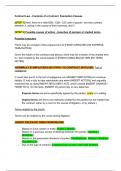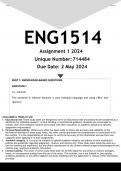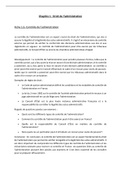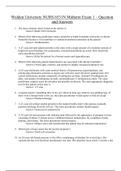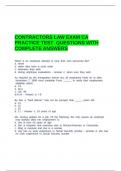Exam (elaborations)
Contract Law - Contents of a Contract: Exemption Clauses (Exam Plan)
- Module
- Contract Law
- Institution
- University Of Law (ULaw)
I scored 75% in Contract Law and received a Distinction (74%) overall in the GDL at the University of Law using these notes. These notes are written in the form of step-by-step exam plans. Compared to standard notes, this will save you lots of time. Most people will make notes during workshops, ...
[Show more]
